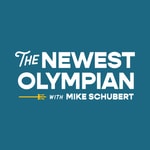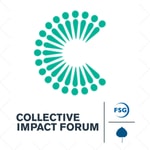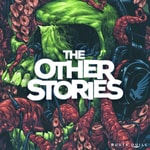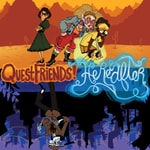SAPIENS: A Podcast for Everything Human – Details, episodes & analysis
Podcast details
Technical and general information from the podcast's RSS feed.
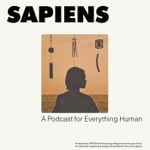
SAPIENS: A Podcast for Everything Human
SAPIENS
Frequency: 1 episode/27d. Total Eps: 92

What makes you … you? And who tells what stories and why? In the SAPIENS podcast, listeners will hear a range of human stories: from the origins of the chili pepper to how prosecutors decide someone is a criminal to stolen skulls from Iceland. Join SAPIENS on our latest journey to explore what it means to be human.
Recent rankings
Latest chart positions across Apple Podcasts and Spotify rankings.
Apple Podcasts
🇬🇧 Great Britain - socialSciences
30/07/2025#24🇺🇸 USA - socialSciences
30/07/2025#63🇬🇧 Great Britain - socialSciences
29/07/2025#21🇺🇸 USA - socialSciences
29/07/2025#73🇬🇧 Great Britain - socialSciences
28/07/2025#30🇺🇸 USA - socialSciences
28/07/2025#57🇬🇧 Great Britain - socialSciences
27/07/2025#63🇺🇸 USA - socialSciences
27/07/2025#52🇬🇧 Great Britain - socialSciences
26/07/2025#42🇺🇸 USA - socialSciences
26/07/2025#44
Spotify
No recent rankings available
Shared links between episodes and podcasts
Links found in episode descriptions and other podcasts that share them.
See all- http://incompetech.com/
15078 shares
- https://incompetech.com
9161 shares
- https://filmmusic.io
5697 shares
- https://twitter.com/carlzimmer
17 shares
- https://twitter.com/bannelia
3 shares
RSS feed quality and score
Technical evaluation of the podcast's RSS feed quality and structure.
See allScore global : 78%
Publication history
Monthly episode publishing history over the past years.
Introducing: Homegoings
Season 7 · Episode 14
jeudi 3 octobre 2024 • Duration 35:41
Host Myra Flynn unpacks one soul food recipe: collard greens, with local and world-renowned chefs, and even her own mother. Together they explore how the history of a once undesirable food mimics the resilience, innovation, and perseverance of a once considered undesirable people.
*
Homegoings is a: Podcast, TV show, and event-series where no topic is off the table, and there’s no such thing as going too deep. Host and musician Myra Flynn brings you candid conversations about race with artists, experts and regular folks all over the country about their literal skin in the game—of everyday life.
The Ancient Child Who's Changing Archaeology
Season 7 · Episode 13
mercredi 24 juillet 2024 • Duration 37:08
Can museums and archaeology harm the dead?
An Indigenous archaeologist from Brazil challenges traditional approaches to studying human bones. Her work reveals how standard practices—such as assigning catalog numbers to ancient bodies—are violent and biased. As she encounters the remains of a 700-year-old child in a university museum, their stories intertwine, highlighting issues of ethics, coloniality, and ethnic erasure. This encounter prompts a discussion on how archaeology and museums can address historical wounds and counter the silencing of Indigenous histories.
Mariana Petry Cabral is a Brazilian archaeologist whose research interests focus on Indigenous archaeologies, collaborative practices, and how people produce and use historical knowledge to understand who they are. She received her Ph.D. from Universidade Federal do Pará (Brazil) and is a permanent professor of the department of anthropology and archaeology at the Universidade Federal de Minas Gerais (Brazil). She was a visiting scholar at Brown University in 2023 and is working on a project about the relevance of archaeological narratives about the past to imagine more inclusive and diverse futures.
Check out these related resources:
- "Finding Footprints Laid at the Dawn of Time”
- "Indigenous Cultures Have Archaeology Too”
- Museum of Natural History and Botanical Garden, UFMG
- "From Structures to Bodies and Beings: The Perishable Vestiges of Lapa do Caboclo, Diamantina, Minas Gerais”
- Follow the Indigenous archaeologist Bibi Nhatarâmiak on Instagram
Moving Through Deaf Worlds
Season 7 · Episode 4
mercredi 22 mai 2024 • Duration 34:18
Why do people migrate from one country to another, leaving behind friends, family, and familiarity in search of another life elsewhere? And how might their experiences look different if they are deaf? Ala’ Al-Husni is a deaf Jordanian who moved to Japan five years ago, where he still lives with his deaf Japanese wife and their family just outside of Tokyo.
Reported by Timothy Y. Loh, a hearing anthropologist who researches deaf communities in the Arabic-speaking Middle East, this episode explores the joys, pains, and unexpected gains of Ala's journey and the meaning of deaf migration in a globalizing world.
Timothy Y. Loh is an anthropologist of science and technology, and a Ph.D. candidate in history, anthropology, and science, technology, and society at the Massachusetts Institute of Technology in Cambridge. His ethnographic research examines sociality, language, and religion in deaf and signing worlds spanning Jordan, Singapore, and the United States. His research has been published in Medical Anthropology, SAPIENS Anthropology Magazine, and Somatosphere, and he has received support from the Social Science Research Council, the Royal Anthropological Institute, and the National Academy of Education and Spencer Foundation, among others.
We thank Annelies Kusters, Laura Mauldin, and Kate McAuliff for advice on accessibility for this episode.
Check out these related resources:
- The MobileDeaf Project, Heriot-Watt University
- “Building the Tower of Babel” and “Deaf cosmopolitanism”
- Valuing Deaf Worlds in Urban India by Michele Friedner
- "How Deaf and Hearing Friends Co-Navigate the World"
- Deaf Gain: Raising the Stakes for Human Diversity edited by H-Dirksen L. Bauman and Joseph J. Murray
Untangling the World’s First-Known String
Season 7 · Episode 3
mercredi 15 mai 2024 • Duration 35:10
At the Abri du Maras site in southern France, archaeologists recovered twisted plant fibers dating back 50,000 years, suggesting Neanderthals had knowledge of plant materials and the seasonal cycles necessary for making durable string. This finding challenges a view of Neanderthals as simplistic and inferior to modern humans, highlighting their sophisticated use of technology and deep environmental knowledge.
In this episode, Bruce Hardy discusses with host Eshe Lewis the oldest piece of string on record and how it reshapes our understanding of Neanderthals.This story not only delves into the technical aspects of making ancient string but also underscores the broader implications for appreciating Neanderthal ingenuity.
In Search for the First Cyborg
Season 7 · Episode 2
mercredi 8 mai 2024 • Duration 32:12
These days, a mention of cyborgs often conjures images from a science fiction future: robot arms and legs, infrared eyes, and other modified humans. However, we don’t need to look into the future to find cyborgs. In many ways, people today are already cyborgs. We are deeply intertwined with technology—from the clothes we wear to the structures we live in. But when did our relationship with technology start? Who was the first cyborg?
These questions take us from the present to the deep past, with host Eshe Lewis joining Cindy Hsin-yee Huang, a Paleolithic archaeologist, on a journey to ponder cyborg anthropology, tool use, and the relationship between our ancient hominin ancestors and their technologies.
Cindy Hsin-yee Huang is a doctoral candidate in the School of Human Evolution and Social Change at Arizona State University and affiliated with the Institute of Human Origins. Cindy is a Paleolithic archeologist, with a focus on stone tools and cultural evolution. Her research, supported by the Social Sciences and Humanities Research Council of Canada, uses stone tools in the archeological record to investigate large-scale patterns of innovation and cultural diffusion during the ancient past. This work helps us understand how technology impacted, facilitated, and reflected human evolution, migration, and social interactions.
Check out these related resources:
Black Influencers Beyond the Screens
Season 7 · Episode 1
mercredi 1 mai 2024 • Duration 34:34
Anuli Akanegbu is the host of BLK IRL, an audio docuseries. She is also a Ph.D. candidate in cultural anthropology at New York University, conducting research on Black creatives who are contract workers in Atlanta, Georgia. In conversation with SAPIENS’ podcast host, Dr. Eshe Lewis, Anuli delves into the historical and current successes and struggles of Black influencers, content creators, and artists for labor rights and recognition.
Through in-depth ethnographic interviews, Akanegbu’s work emphasizes the importance of acknowledging people’s humanity behind their digital personas. It reveals the complex realities of Black professionals in creative industries. And as a result, her research challenges us to rethink our assumptions about the online/offline dichotomy—and the possibility of a joyous and unified “life ecosystem.”
This episode is part of the SAPIENS Public Scholars Training Fellowship program, which provides in-depth training for anthropologists in the craft of science communication and public scholarship, funded with the support of a three-year grant from the John Templeton Foundation.
Cultures of Technology: Season 7 Trailer
Season 7 · Episode 1
mercredi 24 avril 2024 • Duration 01:09
Since the dawn of our species, the ability to make things has made us who we are. Human-made objects, large and small, have enabled and molded evolutionary forces, sparked and expressed our imagination, guided and structured social relations, transformed and destroyed the environment–and much more.
This season of the podcast looks at how a wide range of technologies—from smartphones to comic books to cooking to hydroelectric dams—are intertwined with our lives. Anthropologists’ stories from around the globe reveal fascinating insights into human evolution, social organization, communication, historical trajectories, and the interface between the living and the dead.
Join Season 7’s host, Dr. Eshe Lewis, on our latest journey to tackle big questions about cultures of technology and the purpose, limits, and possibilities of such material culture.
✽
SAPIENS: A Podcast for Everything Human is produced by House of Pod. The executive producers are Cat Jaffee and Chip Colwell. This season’s host is Eshe Lewis, who is the director of the SAPIENS Public Scholars Training Fellowship program. Dennis Funk is the audio editor and sound designer. Christine Weeber is the copy editor.
SAPIENS is an editorially independent magazine of the Wenner-Gren Foundation and the University of Chicago Press. SAPIENS: A Podcast for Everything Human is part of the American Anthropological Association Podcast Library.
This episode is part of the SAPIENS Public Scholars Training Fellowship program, which provides in-depth training for anthropologists in the craft of science communication and public scholarship, funded with the support of a three-year grant from the John Templeton Foundation.
Can We Understand One Another?
Season 6 · Episode 8
jeudi 14 décembre 2023 • Duration 30:00
Hosts Kate Ellis and Doris Tulifau explore the perils and possibilities of the kind of fieldwork that defined Margaret Mead as an anthropologist. They provide answers to the Mead-Freeman controversy but also ask the questions that remain.
In this season finale, we circle back to the problems with coming of age … in Samoa and everywhere.
Season 6 of the SAPIENS podcast was co-produced by PRX and SAPIENS, and made possible by a grant from the National Endowment for the Humanities.
Weaving Stories: Two Women Speak
Season 6 · Episode 7
mardi 5 décembre 2023 • Duration 30:32
We turn from Margaret Mead’s and Derek Freeman’s conflicting accounts of adolescence and sexuality in Samoa to more stories from Samoans themselves.
Author and poet Sia Figiel and activist and anthropologist Doris Tulifau are two Samoan women from different generations. Yet they share a bond and have a similar experience of terrible violence and survival.
They bravely give us a glimpse into the dynamics of power within sexuality and their heartfelt journey of reclaiming it.
Season 6 of the SAPIENS podcast was co-produced by PRX and SAPIENS, and made possible by a grant from the National Endowment for the Humanities.
Sex, Lies, and Science Wars
Season 6 · Episode 6
mardi 28 novembre 2023 • Duration 28:30
After Derek Freeman publishes Margaret Mead and Samoa: The Making and Unmaking of an Anthropological Myth, the controversy heats up. Op-eds, documentaries, censure by a leading anthropological organization, and even a debate on the Phil Donahue Show all follow.
Was Margaret Mead, “the grandmother of the world,” wrong? Or was Freeman?
At stake was the heart of an academic discipline and the nature of being human. Mead’s own daughter, Mary Catherine Bateson, launches a defense, and other anthropologists weigh in too.
Season 6 of the SAPIENS podcast was co-produced by PRX and SAPIENS, and made possible by a grant from the National Endowment for the Humanities.

